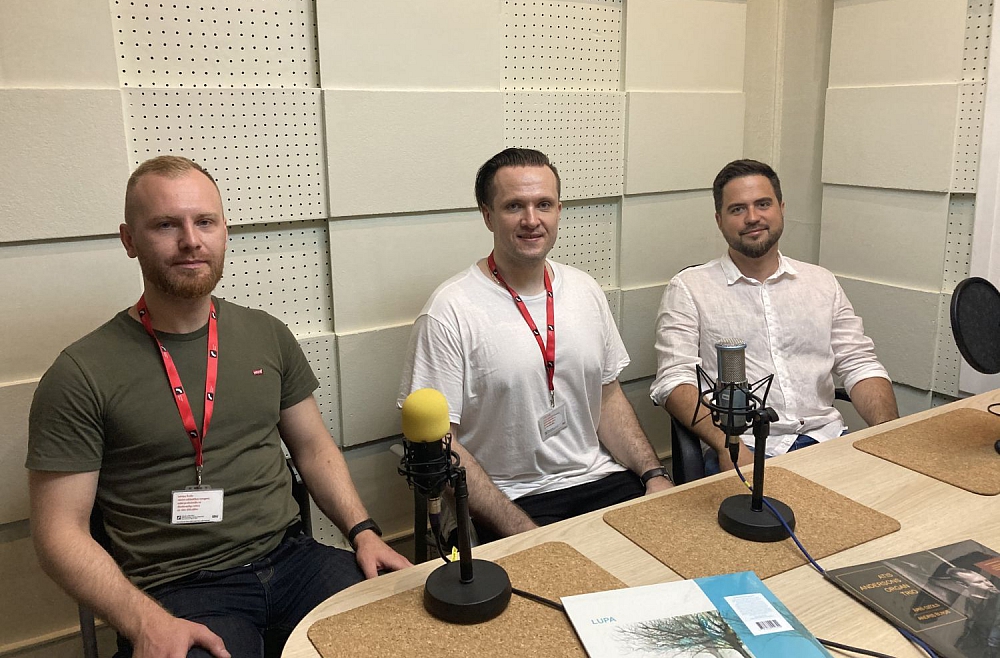“We got off lightly,” says Sabine Dreibholz, the technical director of the women’s shelter for the Main-Rhön region in Schweinfurt on the subject of Corona. A woman and a family of six had to be in quarantine in 2021, and that was mastered.
In 2021, Sabine Dreibholz and the women’s shelter team tried again to enable the women and children who live in the women’s shelter to be as normal as possible, despite hygiene requirements and the occurrence of infections. There were house meetings again, small excursions, Easter and Christmas were celebrated. The aim was to create an atmosphere in which the residents and their children would feel comfortable. “Protection doesn’t just mean having a roof over your head.”
Sabine Dreibolz is proud of the commitment and creativity that made something like everyday life possible. “But that took a lot of strength,” she says when presenting the annual report for 2021. There was a lot of uncertainty about the rules currently in force. Attempts were made to convey security in the women’s shelter.
“Protection isn’t just about having a roof over your head”
Sabine Dreibholz, technical director of the women’s shelter for the Main-Rhön region–
When Corona hit, lockdowns were the norm, many expected domestic violence to rise. “We thought it would go through the roof,” says Sabine Dreibholz. But that didn’t happen. This could also be due to the fact that it was difficult or impossible for the women affected to go away and get help or advice when their partner was always at home.
“The police crime statistics did not show any significant increase in reports of domestic violence for our region. However, we know that these figures do not mean a decrease in domestic violence, at most an increased retreat into one’s own unsafe four walls,” says the annual report of the women’s shelter for 2021
With 43 women and 51 children (2020: 46 / 43), slightly more people lived in the women’s shelter in 2021. Almost three quarters (74.4 percent) of the residents came from the Main-Rhön catchment area. “We also registered an increase in social problems. We received more calls for help from homeless and addicted/mentally ill women,” says the factual report. “More and more young women are homeless,” observes Sabine Dreibholz. The women’s shelter is not allowed to take in homeless, addicted or mentally ill women.
<!–
Aim: to offer safe places to stay for women in the city and district
“As part of the on-call training, we decided to close the gap in protection for women who we cannot take in (due to lack of space, or women who are mentally ill/addicted, homeless women). We are currently holding talks with political representatives so that safe ones can also be found for this target group Overnight places can be made available in the city and district of Schweinfurt,” says the factual report. “That has to go to the political level,” says Dreibholz. In Würzburg, for example, there are such offers, for example in the station mission or in the Oberzell monastery.
What is still important to the women’s shelter team and the supporting association “Women help women”: the implementation of the Istanbul Convention (Council of Europe Convention on preventing and combating violence against women and domestic violence). “In our region, the child’s well-being and the safety of the child’s mother are still not guaranteed, especially when it comes to visitation rights.” Demand: “Protection against violence must take precedence over rights of access.” Sabine Dreibholz sees an implementation problem, not a knowledge problem. “The safety of women and children must come first.”
Women’s shelter team is looking for backup
What Sabine Dreibholz is still concerned about: lack of staff. “We are desperately looking for social workers.” This is also the case in other women’s shelters. 1.5 positions are currently missing in Schweinfurt. Therefore, not all places in the women’s shelter can be occupied. “The founders are slowly retiring,” says Dreibholz. This also means that experience is lost. “We need successors who are committed to it.”
Women’s shelter for the Main-Rhön region in Schweinfurt, address: Postfach 12 35, 97402 Schweinfurt, telephone: (0 97 21) 78 60 30, fax: (0 97 21) 78 60 33. E-mail:frauenhaus.schweinfurt@t -online.de; Office hours: weekdays from 9 a.m. to 6 p.m. Outside these times: Availability around the clock by honorary and full-time employees. Donation account: Sparkasse Schweinfurt, BYLADEM1KSW, DE37 7935 0101 0000 03231. Further information: www.frauenhaus-schweinfurt.de
–


